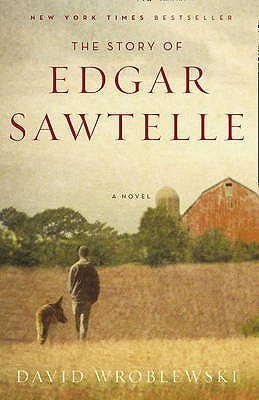The literary landscape is strewn with myriad tales that explore the complexities of the human experience, but few resonate quite like “The Story of Edgar Sawtelle” by David Wroblewski. This poignant narrative blossoms in the heart of rural Wisconsin, entwining the reader in a gripping tapestry of loyalty, loss, and the ineffable bond between humans and animals. At first glance, one might observe that the tale is centered around a boy and his dogs, yet an analytical dive unveils a far deeper exploration into communication, silence, and the sanctity of existence.
Wroblewski meticulously weaves a story that hinges on the life of Edgar Sawtelle, a mute boy who communicates through sign language with his beloved canine companions. This striking choice germinates various themes, each ripe for dissection. Silence, for instance, becomes a profound character in itself throughout the narrative, encapsulating not only the struggles of Edgar but also the thoughts and emotions that often remain ineffable. How can a story thrive within the bounds of silence? This is one of the many contemplative questions that arise when delving into the heart of this book.
The setting itself plays a pivotal role in shaping the atmosphere of the novel. The lush expanse of the Sawtelle family farm is not merely a backdrop; it represents a sanctuary, a world that is both nurturing and stifling. It eschews the chaos of urban life, yet is fraught with its own complexities. The wild, untamed scenery serves as a metaphor for Edgar’s internal tumult — both a landscape of solace and a bearer of tumultuous memories. As readers, this duality subtly beckons us to reflect on our own sanctuaries and the peace they provide amid a cacophony of personal upheaval.
Moreover, the thematic element of loyalty is explored with exquisite depth through Edgar’s relationship with his dogs, particularly a breed of his own creation. These dogs symbolize more than companionship; they embody the unadulterated loyalty and unwavering devotion that surpasses human understanding. Herein lies a fascinating observation: humans often search for authenticity in relationships, yet they, at times, find a purer connection with animals. Wroblewski illustrates this beautifully, compelling readers to ponder why our bonds with pets often feel more gratifying than many human interactions.
As the narrative unfolds, tragedy does not shy away from Edgar’s life. The sudden loss of his father, Gar, serves as a catalyst for Edgar’s journey into a world marred by grief and suspicion. It ignites a visceral exploration of vulnerability in the face of mortality. As readers, we are confronted with Edgar’s inability to voice his emotions, and yet the silence speaks with a deafening clarity. How does one deal with the heart-wrenching reality of loss when the very essence of communication feels stripped away? Wroblewski elegantly delves into this conundrum, forcing us to confront our own heartaches in the process.
The character arc of Edgar Sawtelle stands at the novel’s emotional fulcrum. He is neither a traditional hero nor an archetypal antihero; rather, he embodies an extraordinary blend of attributes that render him profoundly relatable. In his innocence and struggle lies a universal truth — the desire for understanding in a world that often seems indifferent. As each page turns, we are implored to examine the intricate dance of agency and circumstance in shaping our destinies. In this sense, Edgar’s journey invites readers to ponder the fine line that separates silence from deafening isolation.
A counterpoint to Edgar’s narrative is the character of Claude, his uncle, who represents the complexities of familial love intertwined with betrayal and jealousy. Claude’s introduction into the narrative infuses an unsettling tension that propels the story forward, revealing the darker facets of human nature. Here, Wroblewski masterfully juxtaposes love with malice, compelling readers to reflect on their moral compass amidst familial ties. It serves as a visceral reminder of how love can sometimes devolve into competition and envy, urging us to confront the darker corners of our own relationships.
The spiritual undertones of the novel are as compelling as the physical journey Edgar undertakes. Wroblewski encapsulates elements of transcendence through Edgar’s unique bond with the natural world, portrayed with painstaking beauty. The imagery of the forests, fields, and the very fabric of the earth resonates deeply, attributing a sacredness to life that transcends the bounds of speech. This exploration echoes the profound connection that many individuals feel towards nature — a longing for communion with the earth as a source of solace and wisdom.
Ultimately, “The Story of Edgar Sawtelle” transcends the simplistic premise of a boy and his dogs; it beckons deeper introspection on the nature of communication, the nuances of loyalty, and the turbulence of grief. Wroblewski’s masterful narrative craftsmanship invites readers to revel in a journey where silence speaks volumes, leaving us with thoughtful reflections long after the final page is turned. The allure of Edgar’s saga rests not solely in its plot but in the emotions it elicits and the ethical quandaries it articulates. As we traverse through the highs and lows of Edgar’s existence, we cannot help but be captivated by our collective humanity — forever longing, forever searching for connection in both the spoken and unspoken realms of life.
